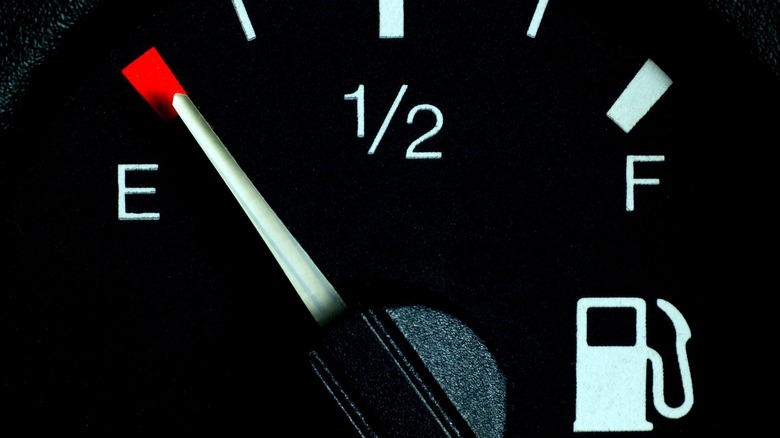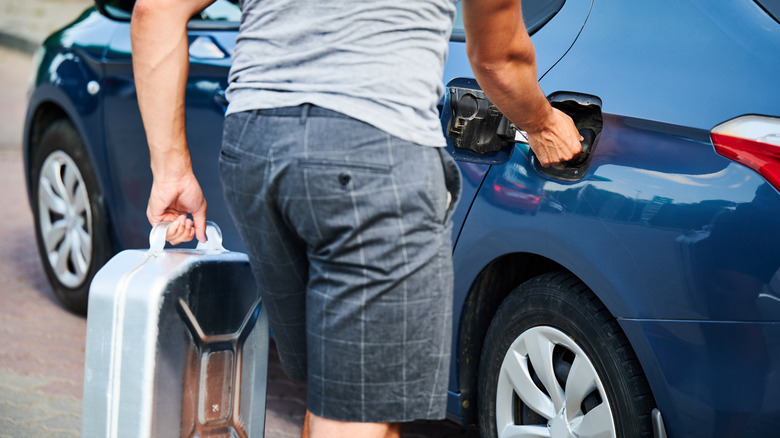Does Driving On Empty Damage Your Engine?
As a fast, efficient, and safe form of transportation, cars have transformed civilization. Fuel such as gasoline and diesel power your vehicle's internal combustion engine, and to avoid causing potential harm, it is important not to drive it on an empty tank.
The fuel system is composed of several parts that can be harmed without gasoline. As the pump can only remain cool if it's submerged in gasoline, a depleted tank can cause it to overheat. If nothing is being siphoned, the lines can fill with air and lead to the engine misfiring or stalling. Additionally, debris from the dried-up tank can obstruct the injectors and filter. Lastly, misfires can push unburnt fuel to the catalytic converter, which could ignite and damage its internal components.
Alongside engine damage, it is crucial to consider the consequences when a vehicle runs out of fuel. When it stalls and cannot be controlled, there is the possibility of an accident if driving on a busy roadway. Furthermore, an immobile vehicle will leave the driver and passengers stranded, meaning a lengthy walk to the nearest gas station or wait for a tow to arrive. These are among the reasons why it's never safe to drive your car with gas light on.
Proper prevention goes a long way
Although no one intends to suddenly run out gas while on the road, it's always a possibility. Should that happen, knowing what to do is vital. First, it's essential to switch on the hazard lights and move to a secure area such as a roadside or shoulder. Once safely out of the way of traffic, a hazard warning triangle should be placed behind the vehicle to warn approaching traffic that the vehicle is immobile. Lastly, contact roadside assistance services and provide details of the situation so they can deliver the fuel.
Rather than wondering how far you can drive on zero miles to an empty tank, it's best to avoid this question entirely by practicing preventative measures. Regularly check the fuel gauge and be sure it complies with the information outlined in your manufacturer's manual. Equally important, especially if going on long drives, is knowing where gas stations are located on your route. Lastly, monitoring traffic and road conditions to avoid congested areas are key to avoid wasting fuel in your car.
Proper vehicle maintenance includes ensuring it has adequate fuel, as this avoids engine damage that can entail costly repairs and gives peace of mind while on the road. Aside from the inconvenience, it is important to note that states such as Georgia and California can impose fines if the car becomes an obstruction to traffic. Moreover, if it causes an accident, potential liabilities could result in costly legal action.

